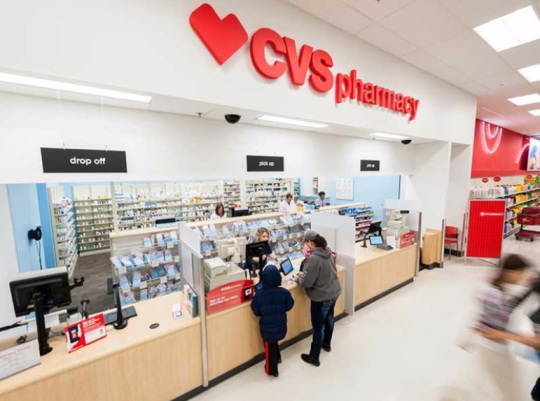
Retail and health care are two industries that continue to intertwine,
but is that a good thing for the industry and the consumer? In the past year,
major mergers between CVS
Health and Aetna, Amazon and PillPack, and Best
Buy and GreatCall have
changed the relationship between retailers and health care services. Most
recently, health insurance company Anthem unveiled
a program with Walmart
that will allow its Medicare Advantage (MA) plan customers to use their
over-the-counter (OTC) plan allowances to purchase health-related items at the
retailer’s stores and web site.
But as we’ve seen in the case of the failed Albertsons-Rite
Aid merger, there’s not always a clear path for retailers seeking to expand
their health care footprint. The RTP
team debates whether these tie-ups are good for the retail and health care
industries, whether they’ll benefit the end consumer, and discusses what
approach retailers should take as these industries continue to converge.
Debbie Hauss,
Editor-in-Chief: As long as these major mergers keep competition alive,
they will benefit consumers as well as the partner companies. Walmart, CVS, Rite Aid and other
traditional retailers are smart to get ahead of this challenge before Amazon gets a strong foothold. The
pharmaceutical industry is one segment we can be sure will continue to grow and
expand, especially as people live longer. The tactic of in-store discounts is a
great motivator for consumers vs. the humanless purchase via Amazon.
Brick-and-mortar retailers should go as far as they can to promote the value of
in-store interactions with humans who are able to provide one-on-one, in-person
engagement and personalized care.
Adam Blair, Executive
Editor: If these mergers, acquisitions and partnerships can indeed expand
health care access and keep costs down, I agree with Debbie that they offer
consumers a tangible benefit and retailers a tremendous opportunity. But (and
you knew there would be a “but”), health care is a devilishly complicated
industry. Not that retail is easy-peasy, but with health care you’re dealing
with government regulations that are often confusing, contradictory, and
sometimes both. Patient privacy concerns, many of them mandated by law, mean
retailers will need to tread carefully when using their own data to target
health care consumers, and vice versa. And let’s not forget that health care
has been a political football since at least 2009. But if retail can lend some
of its business agility to health care in exchange for access to an enormous
market of consumers, it could be a true win-win.
Glenn Taylor, Senior
Editor: One thing retail has always been able to do successfully is get out
in front of a major audience, especially Tier 1 companies. The most successful
companies, and the ones that are highlighted as recent examples of mergers and
partnerships, all have massive audiences that they can quickly establish plans
for. It helps that many of the companies involved in these deals (Walmart, CVS,
Amazon) are all known for low price points as part of their retail offering.
While consumer data concerns are always going to arise no matter what company
is doing the acquiring, I think at the least that they will be able to deepen
present relationships and find better ways to build out new ones. With the
amount of capital (and overall influence) these retailers have, it’s going to
be much easier for them to negotiate better deals for their consumers on drug
prices.
Bryan Wassel,
Associate Editor: Health care has the advantage of being a lucrative
industry, one where being a major retailer is not a detriment. While smaller,
more agile startups might be able to compete with retail giants in specific
areas like eyeglasses or mattresses, the complexity and regulations around
health care and pharmaceuticals mean it’s an area where the size of players
like Amazon and Walmart gives them an unmitigated advantage. Their economic
might means they can stand on even ground with insurers, which can benefit consumers
looking for a better deal on medication, in turn building loyalty to the
retailer. Of course, that doesn’t mean health care is a risk-free investment;
in addition to regulatory concerns, retailers may open themselves to additional
competition from industry peers and the ups and downs of the insurance market.






